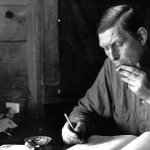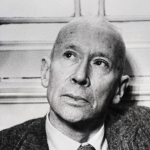The crocodile, with cunning smile, sat in the dentist’s chair.
He said, “Right here and everywhere my teeth require repair.”
The dentist’s face was turning white. He quivered, quaked and shook.
He muttered, “I suppose I’m going to have to take a look.”
“I want you”, Crocodile declared, “to do the back ones first.
The molars at the very back are easily the worst.”
He opened wide his massive jaws. It was a fearsome sight—
At least three hundred pointed teeth, all sharp and shining white.
The dentist kept himself well clear. He stood two yards away.
He chose the longest probe he had to search out the decay.
“I said to do the back onesfirst!” the Crocodile called out.
“You’re much too far away, dear sir, to see what you’re about.
To do the back ones properly you’ve got to put your head
Deep down inside my great big mouth,” the grinning Crocky said.
The poor old dentist wrung his hands and, weeping in despair,
He cried, “No no! I see them all extremely well from here!”
Just then, in burst a lady, in her hands a golden chain.
She cried, “Oh Croc, you naughty boy, you’re playing tricks again!”
“Watch out!” the dentist shrieked and started climbing up the wall.
“He’s after me! He’s after you! He’s going to eat us all!”
“Don’t be a twit,” the lady said, and flashed a gorgeous smile.
“He’s harmless. He’s my little pet, my lovely crocodile.”



















Comment form: